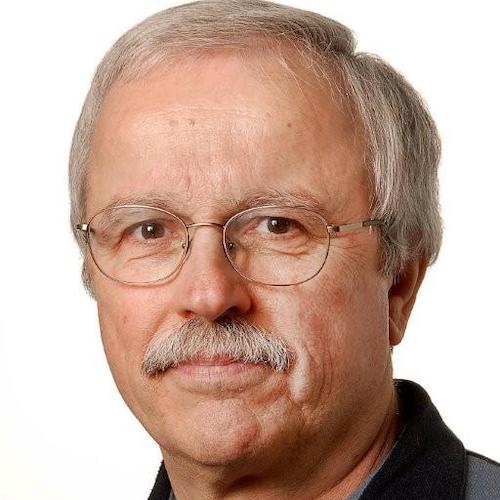After 47 Years of Service, Dr. Thomas Reiland Reflects on His Storied Career and Retirement

Dr. Thomas Reiland, a distinguished member of our department, has recently retired after an exceptional 47-year tenure. Over the decades, Reiland has not only witnessed but also contributed significantly to the changes and growth within the department and across the entire campus. In an insightful interview, he shared his experiences, reflections, and future plans, offering a rich narrative of a career that has spanned nearly half a century.
An Extended Tenure
Reiland’s journey began in August 1977, marking the start of a long and impactful career. He also held a joint appointment with the Graduate Program in Operations Research. “When it came time to think about retirement, I wasn’t sure when I would retire. My health was good and I was enjoying what I was doing,” Reiland recounted. However, a humorous realization nudged him towards retirement: “I began to notice that when I walked into any building on campus, I was always older than the furniture in the building. I figured the campus furniture was trying to tell me something.”
A Chronicle of Change
Reiland’s career has been marked by substantial technological and administrative changes. “Not surprisingly, there has been a great deal of change and growth on campus since I arrived in August 1977,” he noted. The landscape of technology has drastically transformed. “In 1977, no one had a computer on their desk,” Reiland reminisced. “Harrelson Hall stood next to the brickyard like an uninvited and unwanted alien spaceship, and with its curved blackboards, was cursed by students and faculty alike.”
He witnessed the growth of the campus, including the creation of the Centennial Campus. “In 1977, Centennial Campus did not exist,” he said. He also observed the expansion of administrative staff within the College of Physical and Mathematical Sciences, which has evolved into the College of Sciences. “The entire administration consisted of Dean Arthur Menius, his executive assistant Sally Hobby, and Associate Dean Jasper Memory. That was it – three people. I recently checked the web page of the College of Sciences and stopped counting at 50 staff and administrators.”
Classroom Transitions
The transition from chalkboards to whiteboards in the late 1970s and 1980s brought its own challenges. “Those early whiteboard markers delivered a noticeable impact in terms of mind-altering aroma. If you weren’t careful, by the end of a lecture, you could be feeling a little loopy,” Reiland recalled with amusement. “While this may have improved student evaluations, it did not contribute to the lecture’s last 5 or 10 minutes being very coherent.”
The Digital Revolution
The early 1990s marked the dawn of the digital age. “If you had a modem, you could plug a phone line into a computer and hear this: ‘Welcome! You’ve got mail.’ AOL (America Online) had burst onto the scene,” Reiland described. “This was a game-changer. The world instantly went from analog to digital and has never been the same.” He remembered using browsers like Mosaic and Netscape from the University of Illinois and operating systems like DOS.
Adapting to Change
Reiland emphasized the importance of adaptability in the ever-evolving academic environment. “It has been a roller coaster ride for everyone since then, with the ability to adapt and adjust to change being at a premium,” he noted. “Just when I figure out the recent version of MOODLE, they introduce a new, ‘improved’ version and I’m back to square one.”
Retirement Plans
Despite stepping down from his official duties, Reiland plans to continue engaging with statistics. “I already have a spreadsheet that tracks how many times I tell the neighborhood kids to get off my lawn,” he quipped. His retirement will also include travel to visit his six adult children who are spread along the East Coast, from Portland, ME to Tampa, FL, and spending quality time with his grandchildren.
Collegiality and Cooperation
Reflecting on his time in the department, Reiland expressed deep appreciation for the collegiality and cooperation among faculty, staff, and leadership. “During my time here, I’ve been the beneficiary of outstanding leadership by the Department Heads in Statistics and the Program Directors in Operations Research,” he said. “Their responsibilities changed with the times, but their jobs were always a significant challenge. With faculty being the independent and opinionated group that they are, oftentimes the jobs of heads and directors were like being the CEO of a cemetery: they have a lot of people under them, but no one is listening.”
Advice for the Future
Reiland shared valuable advice for both students and faculty. To students, he emphasized the unique support available during their time at the university. “Your time at NC State will possibly be the last time you are associated with a large organization whose primary purpose is to focus on your success. Your time here will be challenging and sometimes frustrating, but there are many resources available to help you succeed. Please do utilize them.”
For new or existing faculty, Reiland highlighted the importance of work-life balance and seeking support. “Set boundaries between your work and personal life to avoid burnout. Connect with colleagues, especially your teaching and research mentors, and make use of all the university resources available for support and encouragement. And of course, never stop learning to stay current and engaged.”
A Grateful Reflection
As he transitions to his new role as Professor Emeritus, Reiland looks back on his career with gratitude. “I’m very thankful and feel very fortunate to have had this life and work experience. I was able to go home every day feeling good about what I had accomplished that day and looking forward to what I could do the next day.”
Thomas Reiland leaves behind a legacy of dedication, humor, and invaluable contributions. His career has not only shaped the department but also left an indelible mark on the university community.
- Categories: